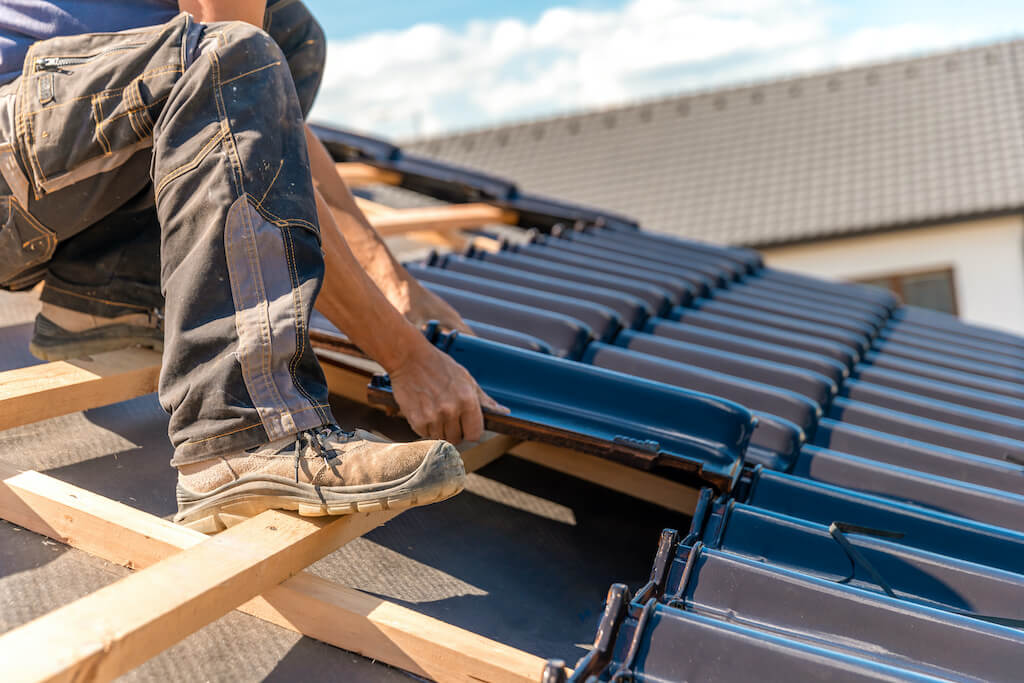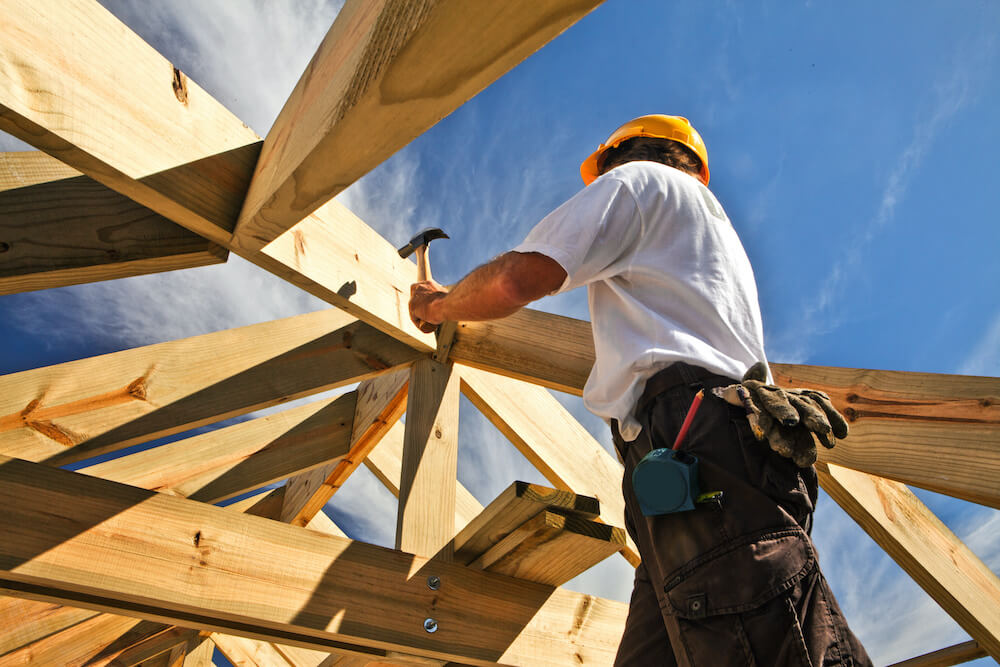Storm damage is a major risk for roofing businesses in Western Australia. Strong winds, hail, and heavy rain can cause significant damage to roofs, leading to costly repairs or even business interruption. In addition to the financial costs, storm damage can also damage your reputation and make it difficult to attract new customers.
That’s why it’s so important for roofing businesses to have adequate insurance coverage. A good insurance policy can help you protect your business from the financial impact of storm damage, and it can also help you get your business back up and running as quickly as possible after a storm.
In this blog post, we will discuss some essential tips and strategies for roofing businesses that want to protect themselves from storm damage.
Types of Insurance for Roofers
Here are some of the most important types of insurance that roofers should consider:
Public liability insurance
Public liability insurance is a vital component of protection for roofing businesses, especially when it comes to safeguarding against the potential financial consequences of storm damage.
In the context of storm damage, public liability insurance becomes crucial in handling claims from third parties who may suffer bodily injury or property damage as a result of the roofing business’s negligence during adverse weather conditions.

Roofers public liability insurance typically covers the following:
- Bodily injury: This type of coverage pays for medical expenses, lost wages, and pain and suffering if a third party is injured as a result of the roofing business’s negligence.
- Property damage: This type of coverage pays for the cost of repairing or replacing property that is damaged as a result of the roofing business’s negligence.
- Legal fees: This type of coverage pays for the cost of legal fees if the roofing business is sued for negligence.
How Public Liability Insurance Protects Against Third Party Claims
In the event that a roofer inadvertently damages a neighbouring property while working on a roof during a storm, the affected neighbour may hold the roofing business liable for the damages.
Roofers public liability insurance comes to the rescue in such situations by providing the financial guarantee needed to address third party claims. It covers the costs of repairing or replacing the damaged property and also takes care of legal fees if the roofing business faces a lawsuit due to its negligence during the storm.
Click here to read more about the importance of Public Liability insurance for roofing contractors.
Tips for Determining the Appropriate Coverage Limits
A good rule of thumb is to have at least $1 million in coverage in this industry. Some practical tips for determining the appropriate coverage limits for roofers’ insurance include:
- Consider the size and scope of your business. The larger your business, the more likely you are to be exposed to liability claims. As a result, you will need to have a higher level of coverage.
- Think about the type of work you do. Some types of roofing work, such as commercial roofing, are more likely to result in liability claims than others. As a result, you will need to have a higher level of coverage if you do this type of work.
- Factor in the location of your business. Some areas are more prone to lawsuits than others. If you operate your business in a high risk area, you will need to have a higher level of coverage.
- Get quotes from multiple insurers. This will give you a good idea of the range of coverage limits that are available and the prices that you can expect to pay.
- Read the policy carefully before you sign it. This will help you to understand the coverage limits and any exclusions or limitations that may apply.
Tradies 365 can help you to determine the appropriate coverage limits for your roofing business. We offer a variety of insurance products that are designed to meet the needs of roofing businesses of all sizes.
Professional indemnity insurance
Amidst stormy weather, roofing businesses may inadvertently make errors that lead to property damage, or they may omit critical steps that result in avoidable destruction. In such cases, professional indemnity insurance for roofing business steps in to cover the costs of repairing or replacing the damaged property, ensuring that the roofing business is financially protected against the consequences of these mistakes and omissions.
Additionally, this insurance also provides essential coverage for legal fees in case the roofing business faces a lawsuit due to negligence during storm related projects. As storms can exacerbate risks and potential damages, the protection offered by professional indemnity insurance ensures that roofing contractors can confidently focus on their work without the constant fear of legal and financial liabilities.
Professional indemnity insurance for roofers typically covers the following:
- Mistakes: This type of coverage pays for the cost of repairing or replacing property that is damaged as a result of a mistake made by the roofing business.
- Omissions: This type of coverage pays for the cost of repairing or replacing property that is damaged as a result of an omission made by the roofing business.
- Legal fees: This type of coverage pays for the cost of legal fees if the roofing business is sued for negligence.
Workers’ compensation insurance
Roofing businesses are well aware of the dangers their employees face while working on rooftops during adverse weather conditions. In the unfortunate event of an injury, employees may have the option to sue the roofing business for damages. Workers’ compensation insurance acts as a crucial shield, preventing costly lawsuits that could otherwise burden the roofing business.
This insurance coverage pays for necessary medical treatments, ensuring that employees receive the care they need to recover from injuries sustained while on the job.
Furthermore, workers’ compensation insurance also covers the wages an employee loses while recovering from an injury. This financial support provides reassurance to employees that their livelihoods are protected during the recovery period, alleviating financial stress for both employees and roofing businesses.
Workers’ compensation insurance for roofers typically covers the following:
- Medical expenses: This type of coverage pays for the cost of medical treatment for injuries that are sustained on the job.
- Lost wages: This type of coverage pays for the wages that an employee loses while they are recovering from an injury.
- Rehabilitation costs: This type of coverage pays for the cost of rehabilitation services, such as physical therapy, that are needed to help an employee recover from an injury.
Property insurance
Roofing businesses rely on various valuable assets, including their offices, equipment, and inventory, all of which are susceptible to damage during storms. Property insurance steps in to provide a safety net, covering the repair or replacement costs in case of damage caused by fire, theft, windstorm, and other hazards associated with stormy weather.
During severe weather conditions, the risk of property damage is heightened, and roofing businesses must be prepared to face the consequences. With property insurance in place, roofing contractors can confidently continue their operations, knowing that their physical assets are adequately protected against storm related perils.
Moreover, property insurance not only covers repair costs but also helps roofing businesses get back on their feet quickly after a storm related incident. This support ensures minimal disruptions to their business operations, allowing them to continue providing services to clients without extended downtimes.
Equipment insurance
This type of insurance covers your business’s equipment, such as ladders, lifts, and power tools, from damage caused by accidents due to storms.
In addition to these types of insurance, roofers may also want to consider getting specialised insurance, such as:
- Builders risk insurance: This type of insurance covers your materials and equipment while they are in transit or on the job site.
- Surety bonds: These bonds guarantee that you will complete a job or project as agreed. They are often required by government agencies or large clients.
Click to Learn about all the benefits you get with roofing insurance.

Maintaining Insurance Coverage and Risk Management
Regularly reviewing and updating your insurance policies is important, as your business evolves, takes on new projects, and faces changing risks. For instance, if your roofing business expands into commercial roofing work, increasing your liability coverage becomes necessary to match the new requirements.
In addition to staying on top of your insurance coverage, implementing effective risk management practices further enhances your ability to mitigate storm related damages and insurance claims. A few essential risk management practices include maintaining accurate records of all your work, materials used, and customers served. These records serve as valuable documentation for tracking your progress and providing evidence in case of disputes or claims.
- Documenting work processes: Documenting your work processes is equally important, allowing you to identify and address potential hazards that could lead to storm related damages or accidents. Safety checklists play a crucial role in streamlining safety procedures, and providing employees with proper training ensures they are equipped to handle storm related challenges safely.
- Implementing safety protocols: Implementing comprehensive safety protocols on the job site is a cornerstone of risk management. By adhering to safety guidelines, using appropriate safety equipment, and inspecting work sites for potential hazards, roofing businesses can significantly reduce the risk of storm related accidents and property damage.
Working with an Insurance Provider
When it comes to securing the right roofers insurance for a roofing business, partnering with a reputable insurance provider that specialises in roofing insurance is of utmost importance. Such providers possess in depth knowledge of the roofing industry and the unique risks it faces, ensuring tailored solutions that address specific concerns.
By working with experienced insurance providers who are familiar with the intricacies of roofing operations, roofers gain a competitive edge in understanding policy nuances and identifying the most suitable coverage options. These insurance providers can guide roofing businesses through the process of obtaining quotes from multiple insurers, allowing for a comprehensive comparison of coverage options, deductibles, and premiums.
With expert advice, roofers can make informed decisions that align with their specific needs, ensuring they are adequately protected against potential risks and liabilities.
Protect your roofing business with Tradies365. We offer a wide range of insurance products that are designed to meet the needs of roofing businesses of all sizes.
Here are some additional benefits of working with Tradies365:
- We have a team of experienced insurance professionals who can help you choose the right policies for your business.
- We offer competitive rates and can help you save money on your insurance premiums.
- We make it easy to file a claim if you ever need to.
- We provide ongoing support and advice to help you stay compliant with insurance regulations.
Contact us today to learn more about how we can help you protect your roofing business.
Note: The material offered here is for informational purposes only. It does not constitute legally binding advice and should not be a substitute for a consultation with an insurance expert.
